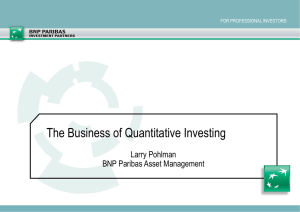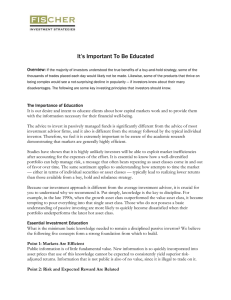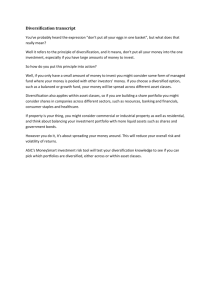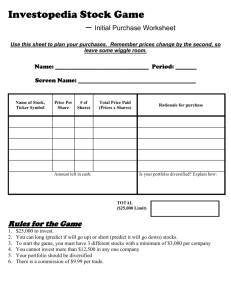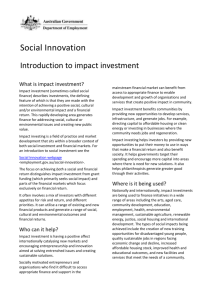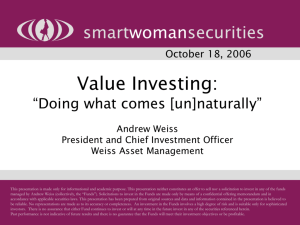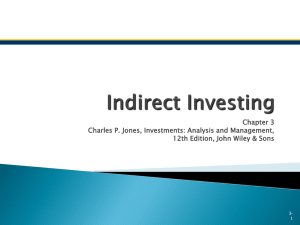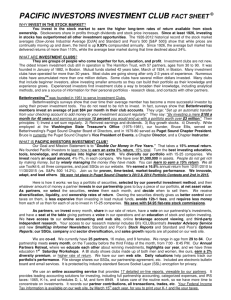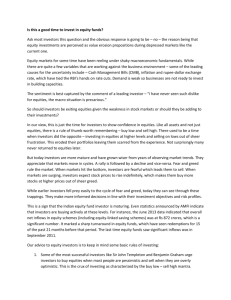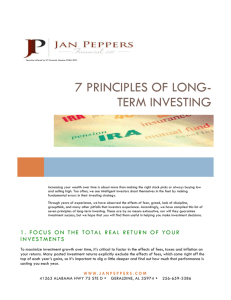HOT SHARE TIPS
advertisement
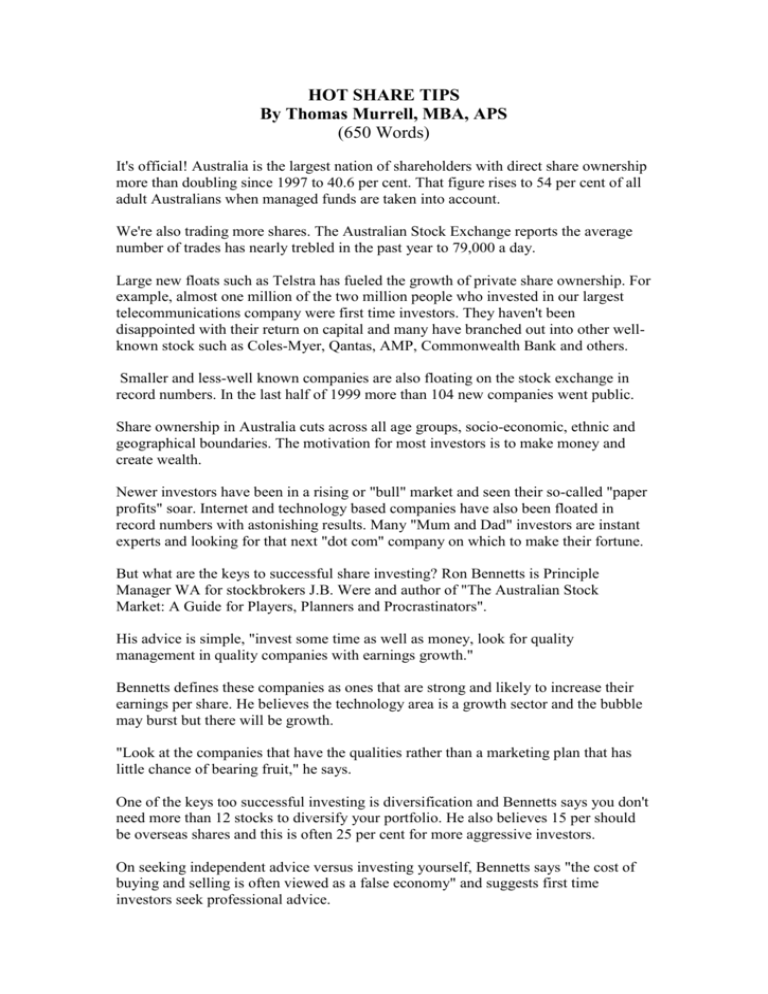
HOT SHARE TIPS By Thomas Murrell, MBA, APS (650 Words) It's official! Australia is the largest nation of shareholders with direct share ownership more than doubling since 1997 to 40.6 per cent. That figure rises to 54 per cent of all adult Australians when managed funds are taken into account. We're also trading more shares. The Australian Stock Exchange reports the average number of trades has nearly trebled in the past year to 79,000 a day. Large new floats such as Telstra has fueled the growth of private share ownership. For example, almost one million of the two million people who invested in our largest telecommunications company were first time investors. They haven't been disappointed with their return on capital and many have branched out into other wellknown stock such as Coles-Myer, Qantas, AMP, Commonwealth Bank and others. Smaller and less-well known companies are also floating on the stock exchange in record numbers. In the last half of 1999 more than 104 new companies went public. Share ownership in Australia cuts across all age groups, socio-economic, ethnic and geographical boundaries. The motivation for most investors is to make money and create wealth. Newer investors have been in a rising or "bull" market and seen their so-called "paper profits" soar. Internet and technology based companies have also been floated in record numbers with astonishing results. Many "Mum and Dad" investors are instant experts and looking for that next "dot com" company on which to make their fortune. But what are the keys to successful share investing? Ron Bennetts is Principle Manager WA for stockbrokers J.B. Were and author of "The Australian Stock Market: A Guide for Players, Planners and Procrastinators". His advice is simple, "invest some time as well as money, look for quality management in quality companies with earnings growth." Bennetts defines these companies as ones that are strong and likely to increase their earnings per share. He believes the technology area is a growth sector and the bubble may burst but there will be growth. "Look at the companies that have the qualities rather than a marketing plan that has little chance of bearing fruit," he says. One of the keys too successful investing is diversification and Bennetts says you don't need more than 12 stocks to diversify your portfolio. He also believes 15 per should be overseas shares and this is often 25 per cent for more aggressive investors. On seeking independent advice versus investing yourself, Bennetts says "the cost of buying and selling is often viewed as a false economy" and suggests first time investors seek professional advice. Ten Tips for First Time Share Investors 1. Set your objectives and work out a budget for how much you want to invest. 2. Avoid speculating. Do some homework about the risks of investing in the stock market and spend time gaining knowledge on how the stock market works. 3. Take a long-term view of your investment. 4. Avoid reacting to short-term pressure and expect some volatility in the market. 5. Identify quality shares in a growth sector. Look for good quality management in industries likely to grow in the future. 6. Diversify your portfolio to spread your risk. This should ideally include about 10 stocks. Less than 10 are not enough diversification and more than 15 is too hard to handle. 7. Compliment your Australian share portfolio with international shares. Exposure overseas can typically be through managed funds. 8. Buy into a managed fund if you only have small amounts of money to invest. A managed fund is an investment where you have a manager that gives you diversification in pooled funds with other investors. To buy direct most advisors believe you need a minimum of $50,000 to do anything meaningful. 9. Monitor your portfolio as closely as possible on the performance of the companies you are investing in. 10. Seek professional advice from a qualified stockbroker or financial planner. * Thomas Murrell, MBA, APS is an award winning broadcaster, professional speaker and media consultant. His company, 8M Media & Communications provides solutions to media and communication issues for Top 500 companies, Government agencies and leading Universities. He provides media training, media advice and keynote presentations on issues relating to marketing and media. He is the author of "China Media - The Ethics of Influence" ISBN 0-646-37451-6 and can be contacted at www.resources2000.com.au or tmurrell@highway1.com.au, or 0417 - 984 996. © 2000 Thomas Murrell, 8M Media & Communications
